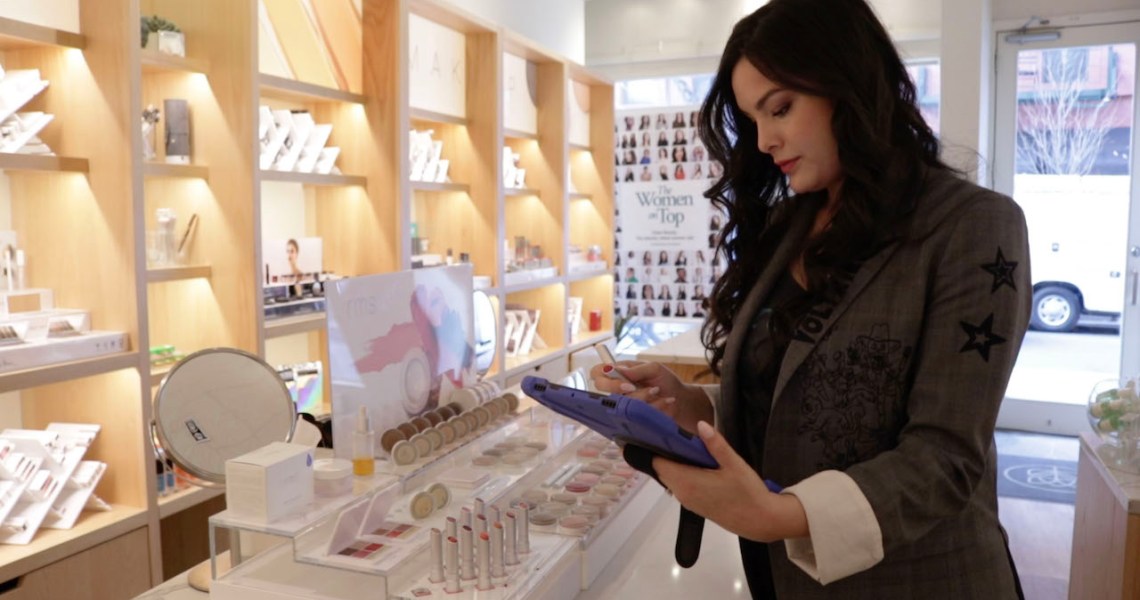As beauty store closings have become widespread amid the Covid-19 pandemic, retailers and brands are turning to virtual consultations to make up for the lack of in-store services.
Over the weekend, clean beauty retailer Credo Beauty posted on Instagram to highlight its Credo Live service, which makes store estheticians and makeup artists available from each of its nine stores via online chat. The retailer also promoted the service in an email announcing the closures of its U.S. stores on March 16.
The Credo Live feature was created using technology from omnichannel commerce startup Hero and functions “like an Uber for sales associates,” said Credo Beauty CEO Dawn Dobras. Sales associates, which “have 30 seconds to grab a chat online,” offer services like shade matching, clean swaps (recommendations of clean alternatives to customers’ products) and skin advice. The feature links directly to e-commerce, as consultants can drop customers onto specific product pages as they make recommendations.
Long before coronavirus, virtual consultations had been part of beauty brands’ omnichannel strategy, but the back-burner tactic (Credo launched Credo Live in November 2018) is now being placed front and center. Other beauty brands are finding a variety of ways to connect customers to advisers during the outbreak. Skin-care brand Tata Harper posted a message on its Instagram account on Saturday stating that live chat and its skin-care concierge program were available, offering customers a complimentary phone consultation after registering on the brand’s site. Elsewhere, clean beauty brand Beautycounter launched its own virtual consultation service when it decided to close stores on Friday. The service was mentioned in a message from founder and CEO Gregg Renfrew on Instagram. Customers can email Beautycounter’s four individual store locations in New York, Nantucket, Denver or Boston through the store locator on the brand site, and then can chat with store associates via their preferred method of communication including phone, FaceTime or Zoom.
For Credo’s part, Dobras said virtual consultations do indeed boost sales.
“Online customers who shop using Credo Live are 15 times more likely to make a purchase versus those who don’t,” she said.
The use of virtual consultations with store associates also adds a human element, unlike AI and AR that are also being adopted in place of services or communications typically used in a store.
Ad position: web_incontent_pos1
“Beauty is about connecting with people,” said Odile Roujol, the founder of the networking group Fashion and BeautyTech Community. “Tech can’t replace the human touch; it’s just a part of the experience and shopping behavior.”
With the U.S. GDP expected to contract by 5% this quarter as a result of the outbreak, according to Goldman Sachs, dampened consumer sentiment will create a challenging climate for beauty. Still, customers are shopping for beauty now; online sales for Credo were 20% higher than average over the past weekend, said Dobras. The retailer’s virtual consultation tool is especially popular: It saw a 34% increase in virtual consultation chats over the past weekend compared to the average Saturday and Sunday, leading to a 10% increase in conversion through the channel.
Going forward, the question is now whether or not the current reliance on digital will lead to a more lasting shift in consumer habits once the Covid-19 pandemic clears.
“In all honesty, there is no world anymore where digital experiences and physical experiences should be separated,” said Dobras. “Where [our customers] buy is just a function of what else is going on in their life at that moment.”




